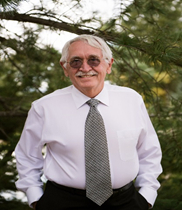UN and Korean War Conference 2022 Keynote Speaker
(9:40-10:30 am, 22 October, 2022)

Professor Steven Casey
London School of Economics (LSE), UK
The Korean War: The View from the United State
From America’s perspective, the Korean War passed through three distinct phases: the fight against North Korea, the conflict with the Peoples Republic of China, and a stalemate war as the two sides carried on a propaganda struggle at Panmunjom and tactical battles along a largely static fighting front. As the fortunes of war fluctuated, so did the way Americans saw the conflict. This was partly because they were exposed to vivid and shocking accounts of the battlefield, especially in the early months when General Douglas MacArthur refused to censor battlefield dispatches. It was also due to the different ways the administration framed the conflict. What started as both a Cold War containment policy to halt Stalinist expansion and a UN collective-security operation against a clear-cut case of North Korean aggression, soon morphed into a much larger war against a China that the UN proved reluctant to indict, before ultimately becoming a war fought over whether to forcibly repatriate communist POWs. All the while, the government’s efforts to define the war came under ferocious attack from a hyper-partisan Republican Party that initially received significant support from MacArthur. To understand how Americans responded to the Korean War we need to look beyond the oft-repeated notion that the public simply became tired of the war as it dragged on. We must look instead at the complex interaction between American elites, in government, in Congress, and in the media.
Steven Casey is professor of international history at the London School of Economics (LSE), UK. He is the author of ten books on American foreign policy, public opinion, and the media, including Selling the Korean War: Propaganda, Politics, and the Press in the United States, 1950-1953, which won both the Truman Book Award and the Neustadt Prize for best book in American politics. Others are War Beat, Pacific: The American Media at War against Japan (2021), War Beat, Europe: The American Media at War against Nazi Germany (2017), When Soldiers Fall: How Americans have Confronted Combat Losses, from World War I to Afghanistan (2014), Cautious Crusade: Franklin D. Roosevelt, American Public Opinion and Nazi Germany, 1941-45 (2001). His articles have appeared in journals such as the Journal of Strategic Studies, Presidential Studies Quarterly, and Diplomatic History.
UN and Korean War Conference 2022 Keynote Speaker
(9:40-10:30 am, 23 October, 2022)

Professor James I. Matray
California State University, USA
Mission Accomplished:
The United Nations and the Korean War Armistice
On 26 June 1945, fifty nations signed the UN Charter that defined the new organization’s prime purpose as “to take effective collective measures for the prevention and removal of threats to the peace.” Just five years later, the United Nations would confront the first major test of whether it could fulfill this self-imposed responsibility when North Korea launched a massive military offensive to conquer South Korea and reunite the peninsula. Historians have offered conflicting judgments about whether UN participation in the Korean War provided an example of effective collective security. However, prior scholars have devoted less attention to the role of the United Nations in halting the fighting in Korea. In the fall of 1952, as this paper with show, UN leaders acted with wisdom, vigor, and persistence to end the Korean War, resulting in passage of a resolution that ultimately would break the deadlock at the truce talks regarding repatriation of prisoners of war (POWs) and pave the way for an armistice. In doing so, the United Nations achieved its mission “to take effective collective measure for the prevention and removal of threats to the peace.”
James I. Matray has been professor of history at California State University, Chico, since 2002. His publications focus on U.S.-Korean relations during and after World War II. He has written or edited nine books, as well as publishing more than fifty scholarly articles and book chapters. Matray’s most important books are The Reluctant Crusade: American Foreign Policy in Korea, 1941-1950 (1985) and Japan’s Emergence as Global Power (2000). His latest major publication is Crisis in a Divided Korea: A Chronology and Reference Guide (2016). Since 2013, he has served as the editor-in-chief of the Journal of American-East Asian Relations.
 통일한국연구원
통일한국연구원